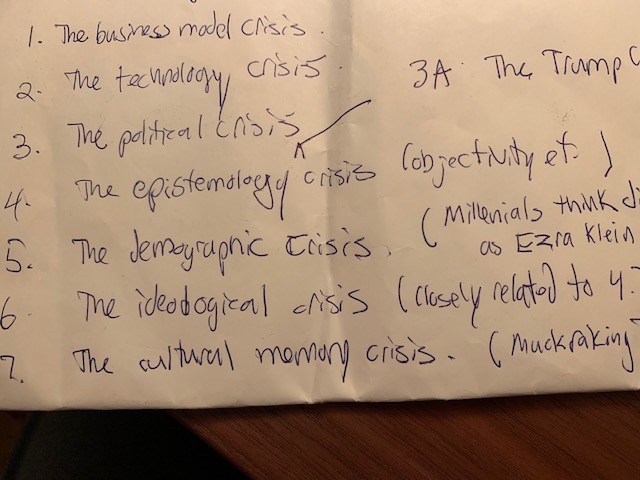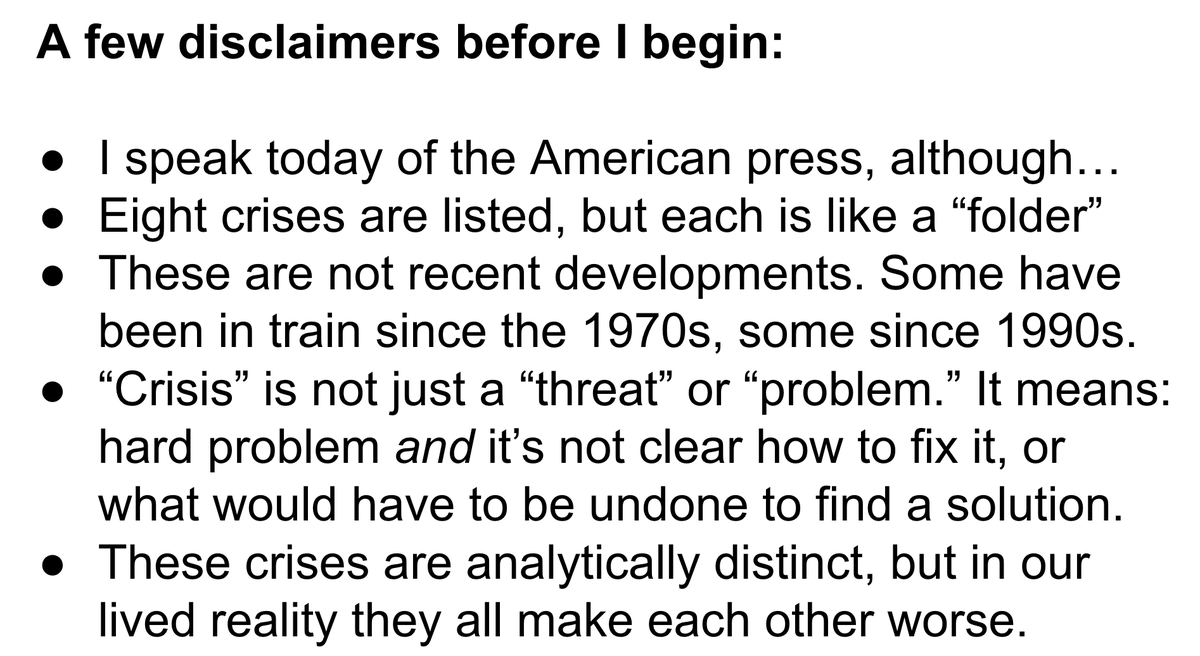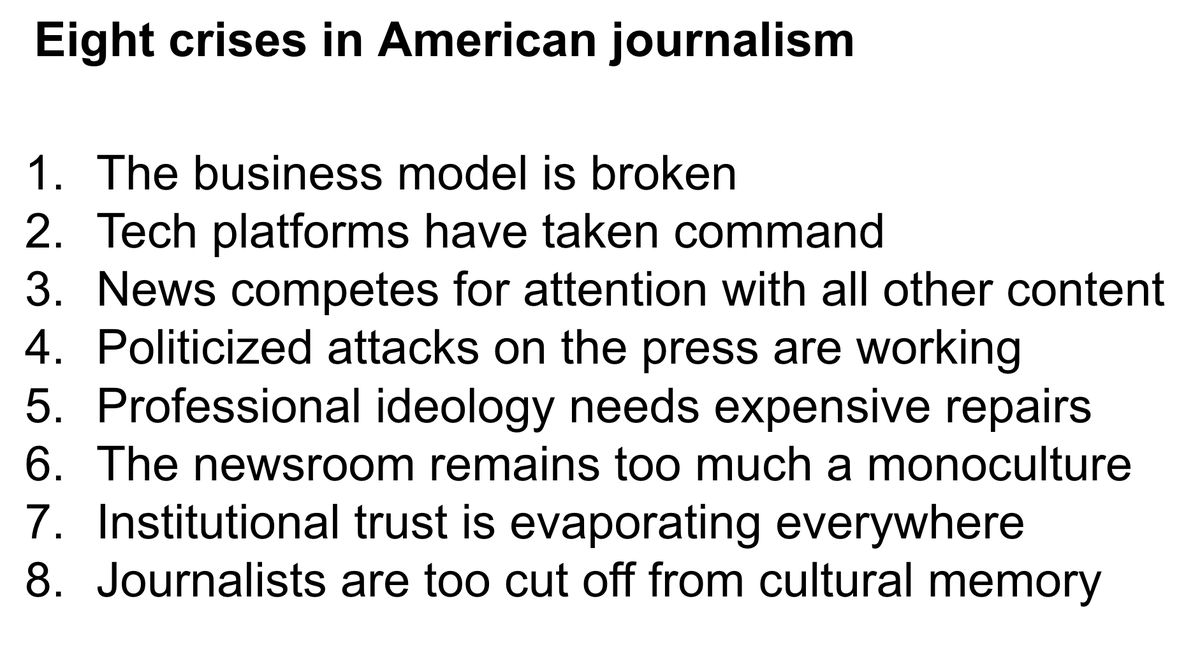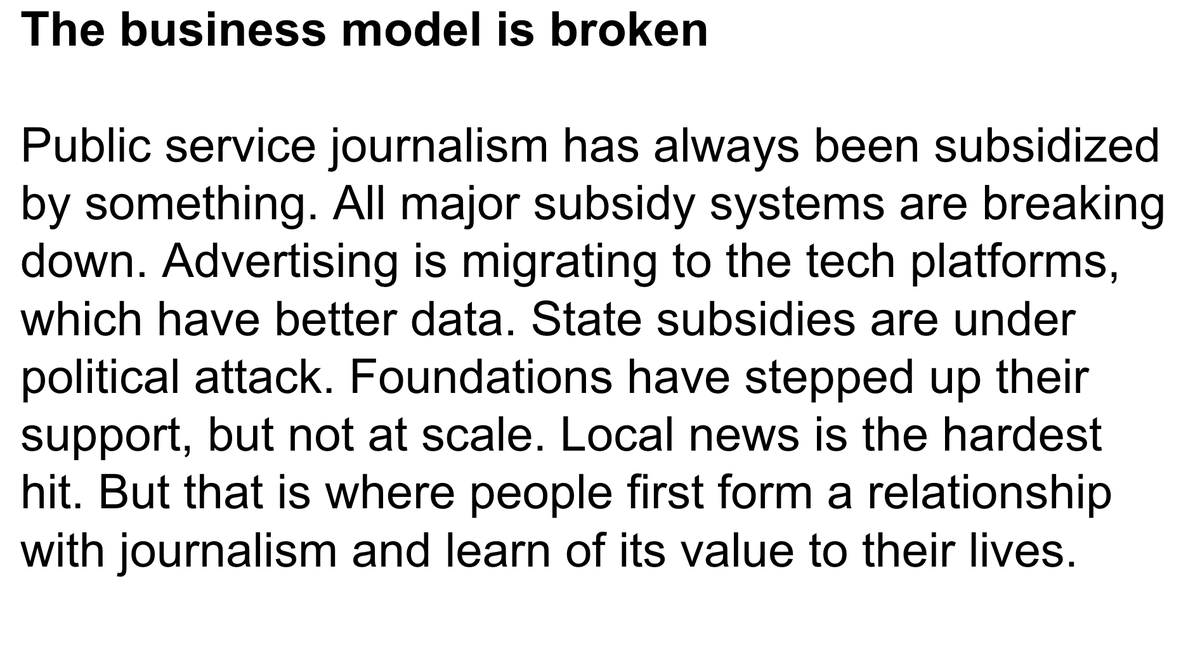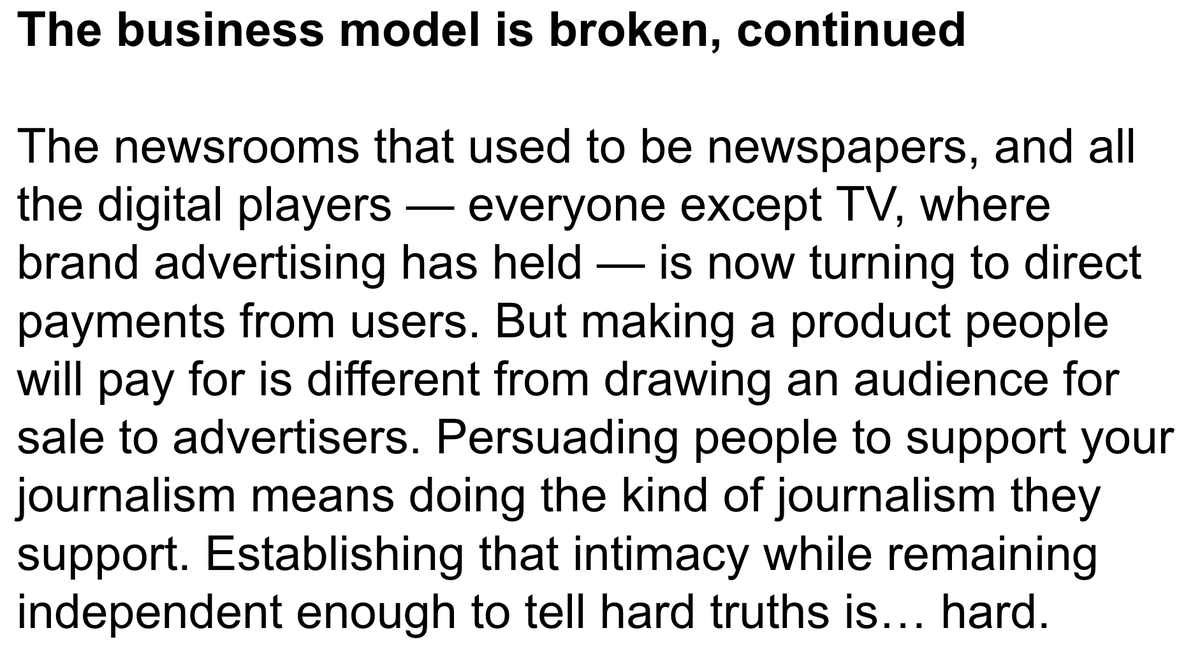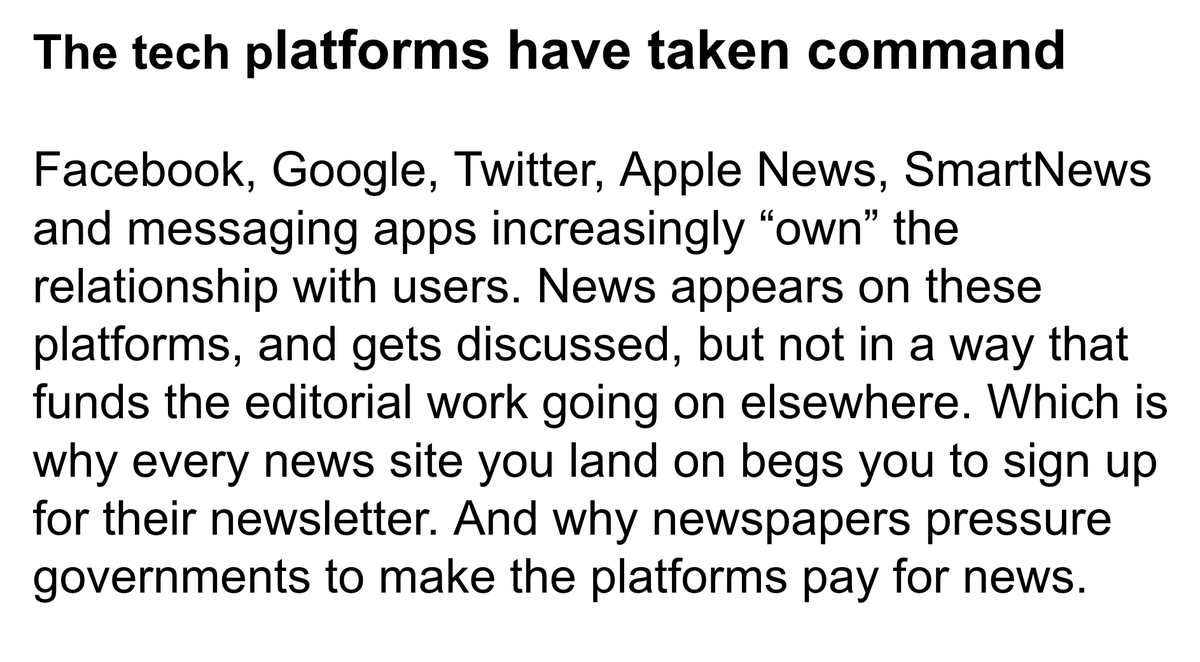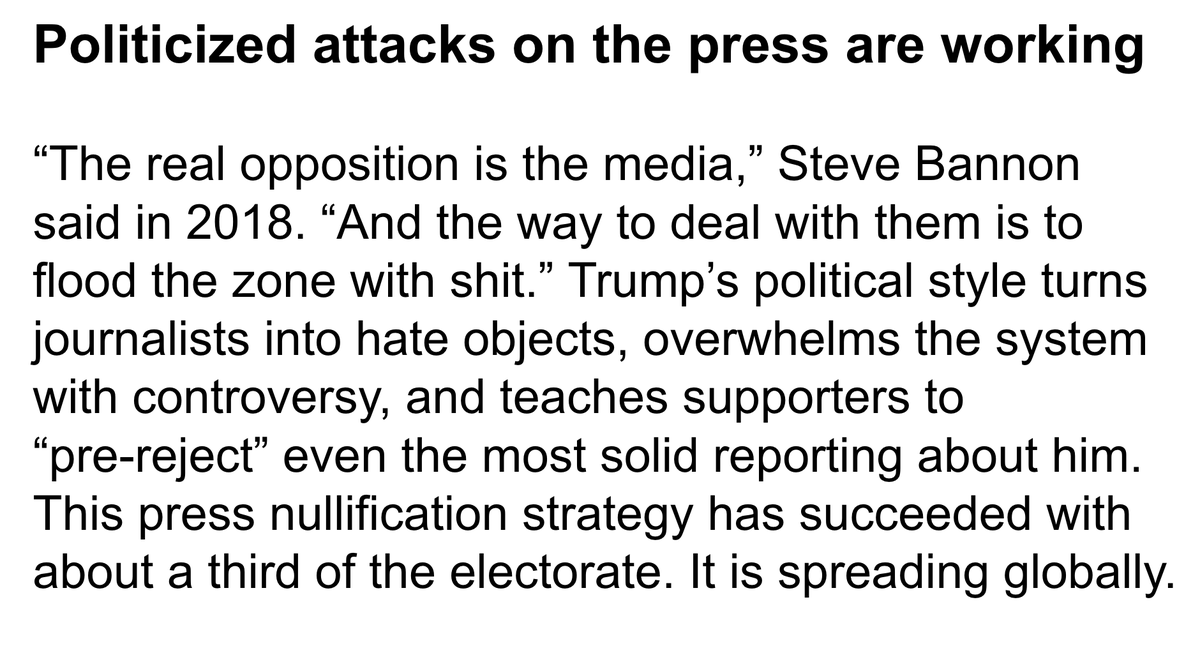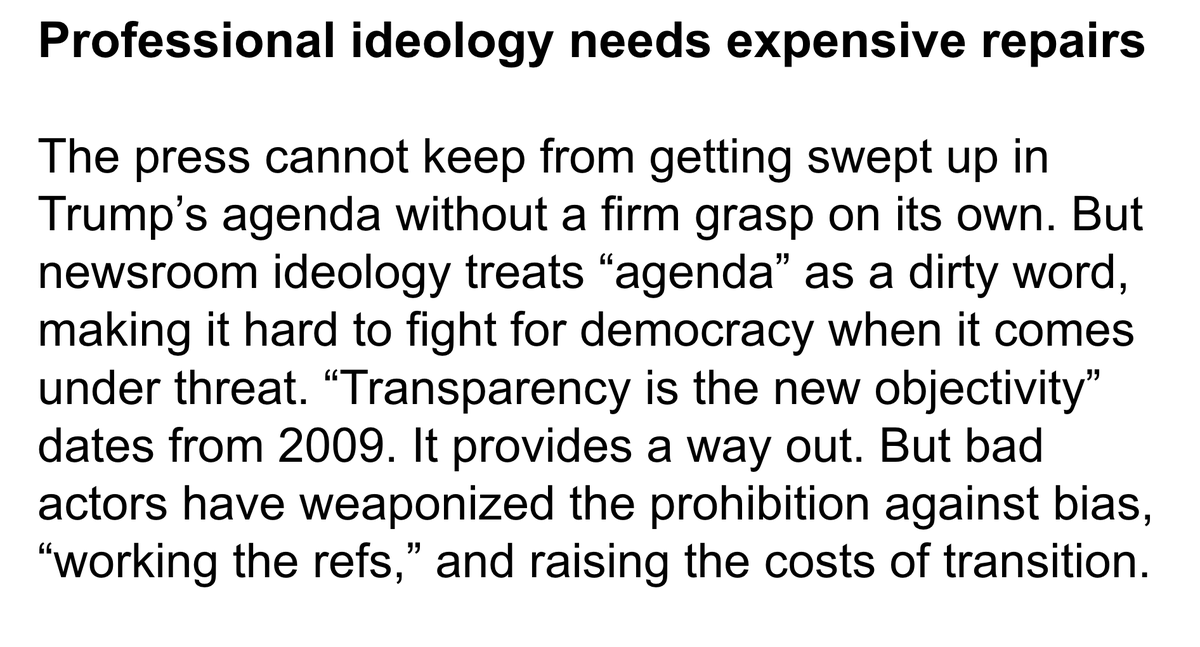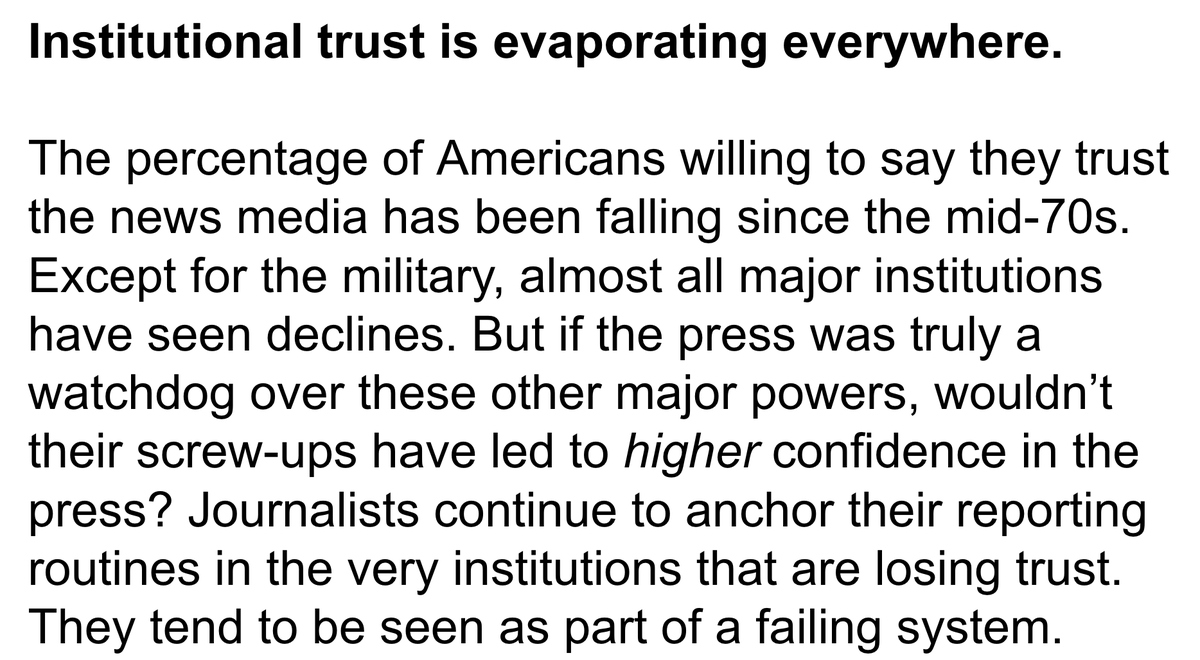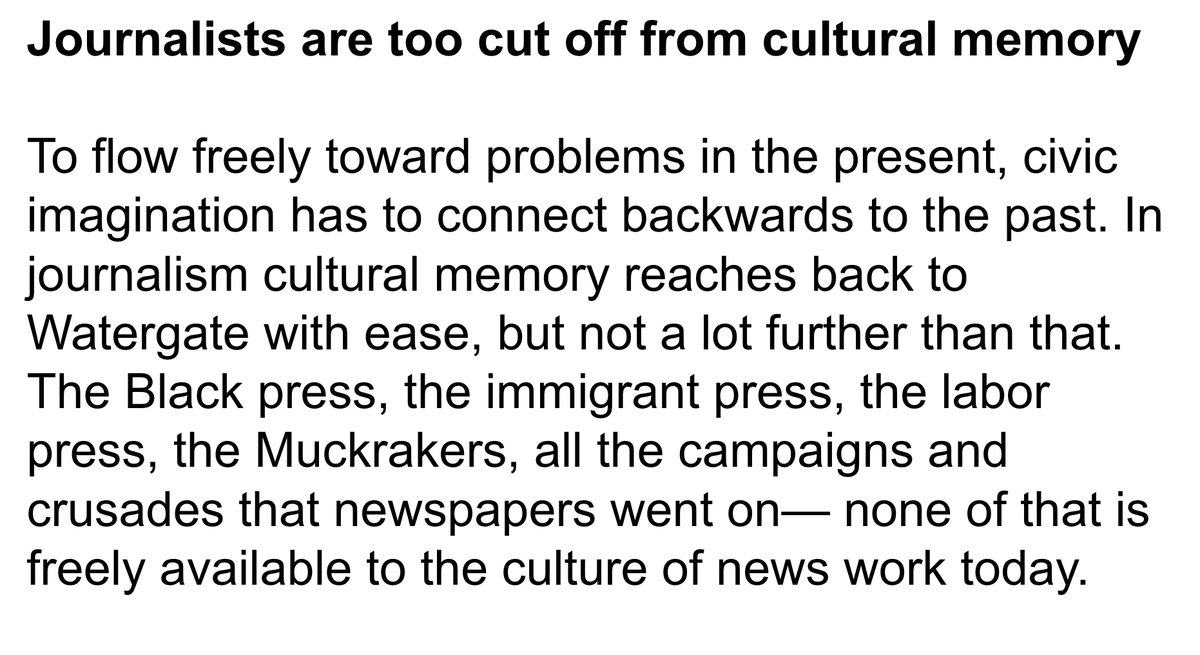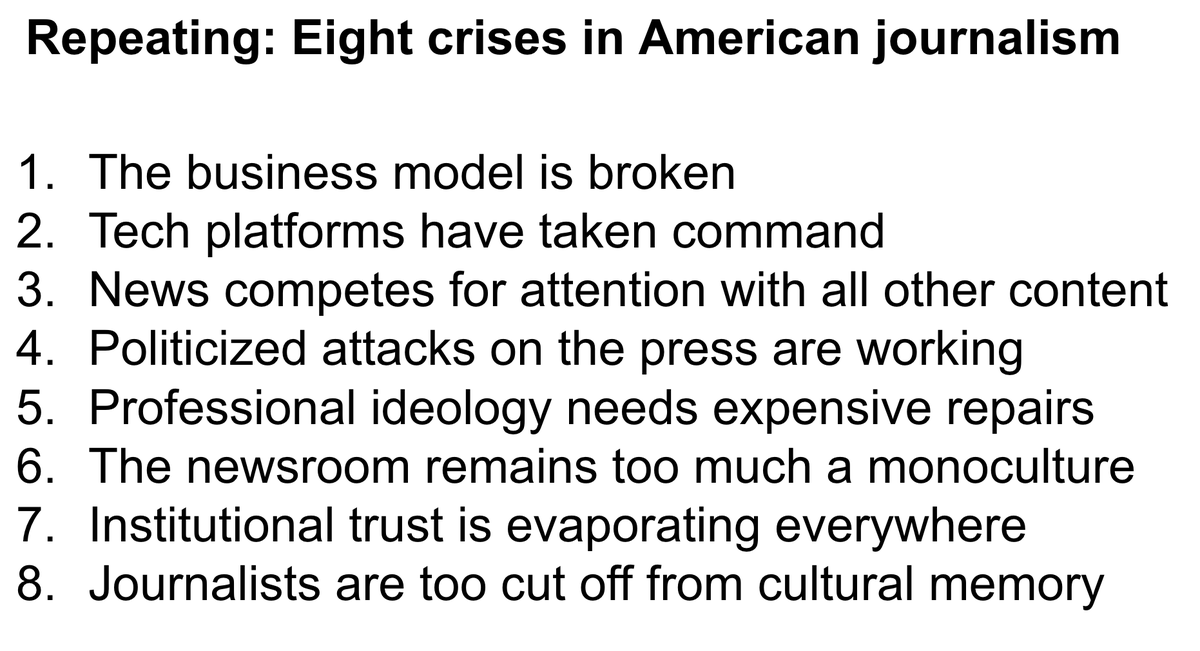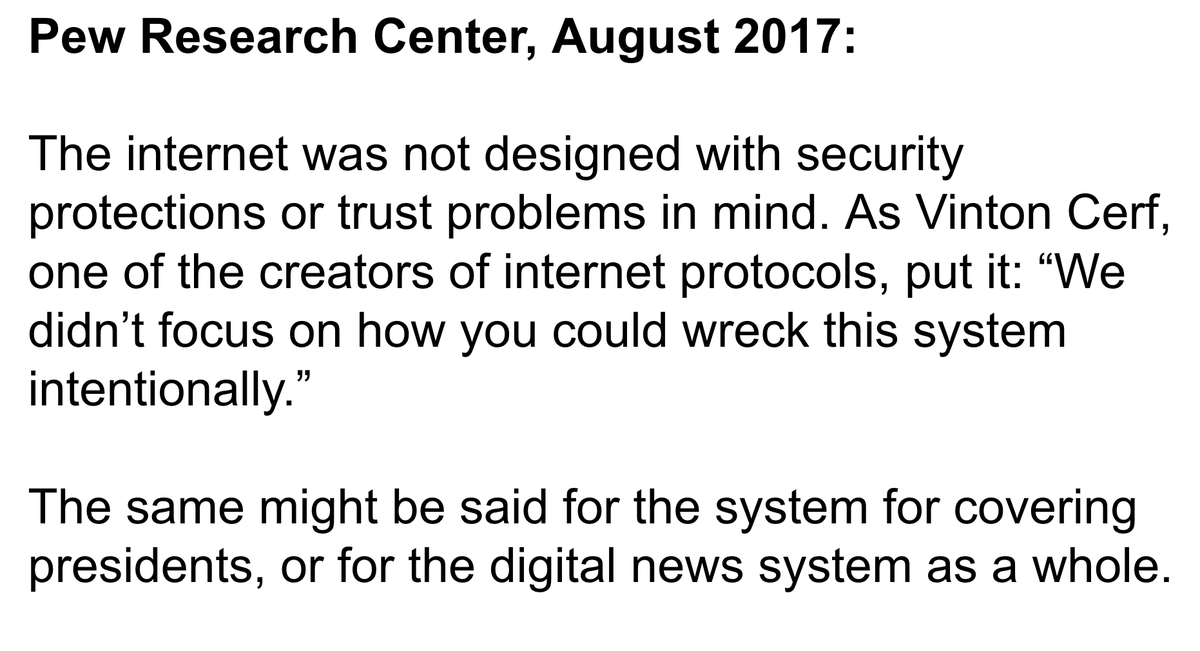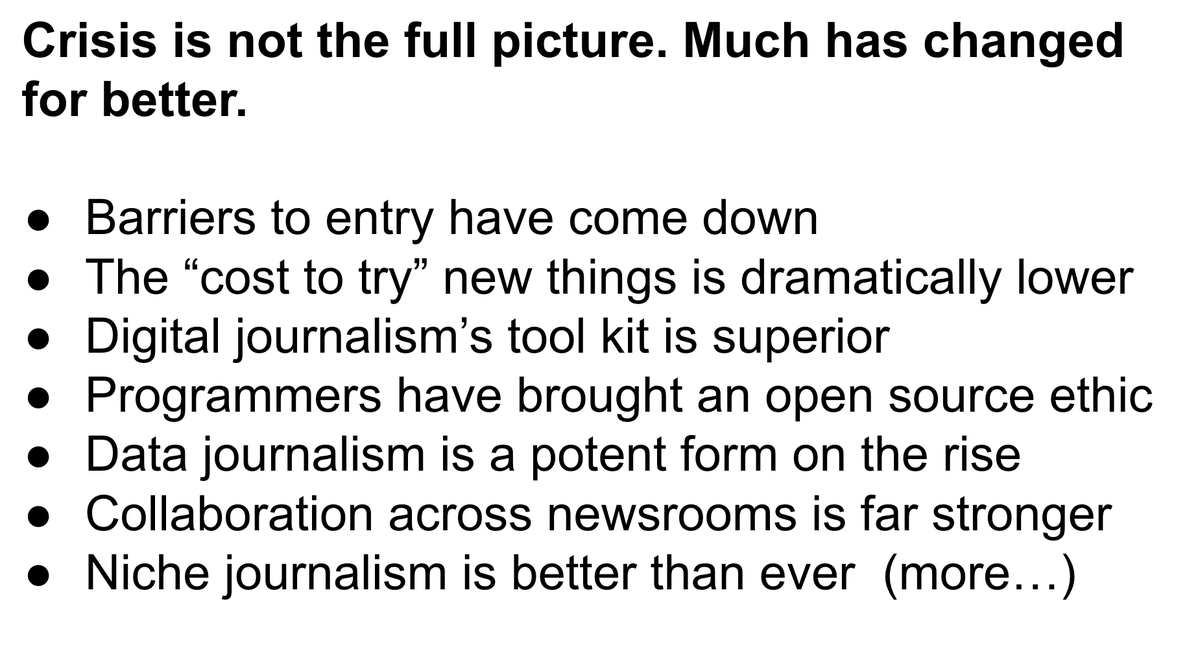Thread: "A Media Ecologist Explains the Many Crises in Journalism."
Notes and slides from my lecture to the Media Ecology Association, June 18, 2020. https://www.media-ecology.org/convention ">https://www.media-ecology.org/conventio...
Throwaway image: what my scribbled scheme looked like eight days out. 1/
Notes and slides from my lecture to the Media Ecology Association, June 18, 2020. https://www.media-ecology.org/convention ">https://www.media-ecology.org/conventio...
Throwaway image: what my scribbled scheme looked like eight days out. 1/
Twelve years into my experience floating ideas on Twitter, I can anticipate some of the misunderstandings, and try to head them off. Pro tip: never say something is new. It& #39;s not worth it. 3/
I did a different lecture on this theme. Here& #39;s the link https://reutersinstitute.politics.ox.ac.uk/calendar/what-i-learned-watching-american-press-try-cover-donald-trump">https://reutersinstitute.politics.ox.ac.uk/calendar/... 10/
By "expensive" I mean the cost in pride, lost authority, internal struggle, rewritten textboooks and codes of conduct, bad faith attacks from opportunists, etc. 11/
Lincoln Steffens on civic corruption (1904): "I am not a scientist. I am a journalist. I did not gather with indifference all the facts and arrange them patiently for permanent preservation and laboratory analysis. I did not want to preserve, I wanted to destroy the facts." 15/

 Read on Twitter
Read on Twitter